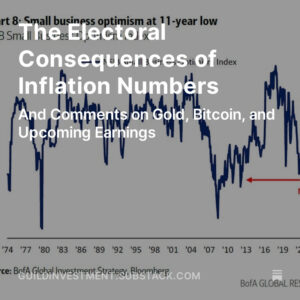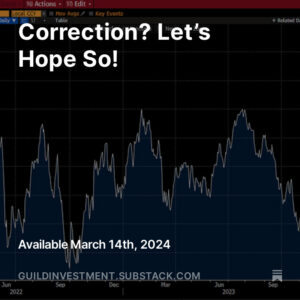Chinese Banks: No Danger Now, But Watch Carefully
On the fringes of the Chinese financial system, signs of stress continue to appear, so far restricted to some small banks and trust companies. The central government is continuing its efforts to unwind the excesses that built up after 2009, when it initiated a massive stimulus effort to counteract the effects of the global Great Recession. As often occurs after a boom time, institutions that reached too far and made loans that were too risky find the asset side of their balance sheet getting challenged.
In China, the trouble is currently restricted to a handful of small local banks, and some overleveraged trust companies. The latter are entities in China’s shadow bank sector — they are not illegal, but they are not as tightly regulated as official banks, and offer customers higher returns. Because these trust companies’ products are often sold to consumers by official banks, however, there is a public perception that the government guarantees their safety, and would make investors whole in the event of a trust company’s collapse.
As we’ve often noted to readers, China’s basic existential dilemma is straightforward. The bargain the government has struck with the people is to generate sufficient economic growth, and in return, the people will tolerate a certain level of corruption and lack of political and civil liberties. Should the Communist Party fail to deliver that growth, they would face a restive population, and potentially, the end of their rule. (This would not be an unusual development in the broad sweep of Chinese history, which has seen long cycles of centralization followed by the collapse and fragmentation of centralizing dynasties.)
Stimulus staved off the danger of a growth collapse, but at the cost of building up potentially destabilizing leverage in the financial system. For about two or three years, the priority has been to unwind the stimulus while maintaining sufficient growth. The government has tightened regulations, forced institutions to identify and clarify their risk burdens, and restructured or unwound troubled financial firms. But they have also kept the system flush with liquidity and almost universally protected individual investors from taking losses.
Careful analysis shows that at present, relatively few institutions are in trouble. A small bank in Baotou, in inner Mongolia, was taken over by financial watchdogs in May, causing some tremors. Analysts estimate, though, that at present, only about 5% of China’s banks are under any significant stress from impaired assets. The worry, of course, is that continued economic deceleration could cause the number of such troubled institutions to spike in an unanticipated way.
Many trust products — those savings vehicles we mentioned previously that many ordinary Chinese use to earn higher interest rates than what’s available from official institutions — are based on construction, housing, and infrastructure debt. So the fear is that a significant slowdown could cause a cascade of defaults typical of financial crises that occur anywhere in the world.
The worry for the rest of the world is that even though China’s financial system is largely closed, such events would lead to a dramatic slowdown in China that would be disruptive to the rest of the global economy, and could spread financial contagion that way. It is not just China whose financial system contains debt levels that could become problematic under higher interest rates and economic recession. In spite of the new era of skepticism about global trade, the fact remains that global economies and financial systems have become much more intimately connected over the past several decades, and will remain so even if trade relationships undergo radical renegotiation.
Therefore, we continue to watch the health of China’s financial system. Although there are signs of trouble at the margin, those have yet to get anywhere near the country’s major banks.
Investment implications: The health of China’s financial system is important to monitor, but it does not seem to be a current threat for global investors.







